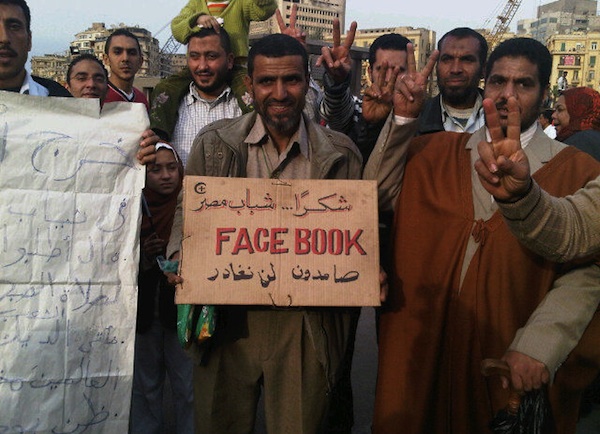Arab governments have passed laws against cybercrime and online terrorism to cow social-media firms and their users. Facebook “tries to comply” with local codes. It has opened an office in Dubai to liaise with officials in the region. “Digital platforms try as much as they can to collaborate with regulators to avoid the consequences of violating local regulations,” says a Gulf official. Dissidents concur.
阿拉伯政府已經通過打擊網絡犯罪和網絡恐怖主義的法律,來威脅社交媒體公司及其用戶。Facebook“試圖遵守”當地法規。它在迪拜開設了一個辦事處,與該地區的官員聯絡。一位海灣官員說:“數字平臺盡可能多地與監管機構合作,以避免違反當地法規的后果。”。異見分子對此表示贊同。

Governments use more subtle forms of pressure, too. They have threatened to tax Facebook’s in-country earnings and lean on advertisers. Many also operate electronic armies to bombard Facebook with content, often complaining about opposition groups. A watchdog backed by Israel called Act.il claims to have 15,000 “online volunteers” from 73 countries keeping an eye on the platform. As a result, say critics, Facebook screens content by Palestinians far more vigorously than posts by Israelis.
政府也應用了更為巧妙的壓力形式。他們威脅要對Facebook的國內收入征稅,并對廣告公司進行施壓。許多政府還運營電子軍隊,通過經常抱怨反對派組織的內容對Facebook進行轟炸。一個由以色列支持的監督機構Act.il聲稱,有來自73個國家的15000名“在線志愿者”在關注這個平臺。批評人士表示,結果是,Facebook對巴勒斯坦人的內容的屏蔽力度遠遠超過以色列人的帖子。
In an effort to restore user confidence, the firm recently deleted hundreds of fake accounts promoted by Saudi Arabia, Iran and Egypt. In May it unveiled a new oversight board which will act as its “supreme court”. It will hear appeals and monitor government websites for incitement. “Official terrorist designations will not necessarily be binding on us, especially when they come from authoritarian governments that misuse terrorism to abuse opponents,” says Tawakkol Karman, a Yemeni journalist and Nobel laureate who is one of two board members from the Middle East. More such thinking is needed.
為了恢復用戶的信心,該公司最近刪除了沙特阿拉伯、伊朗和埃及推廣的數百個假帳戶。 5月,它公布了一個新的監督委員會,將作為其“最高法院”。該監督委員會將聽取上訴,并監督政府網站的煽動行為。“官方對恐怖分子的指認不一定對我們有約束力,特別是當他們來自濫用恐怖主義虐待對手的獨裁政府時。”塔瓦科爾卡曼表示,他是也門記者和諾貝爾獎得主,也是兩名來自中東的董事會成員之一。需要更多這樣的思考。
譯文由可可原創,僅供學習交流使用,未經許可請勿轉載。












